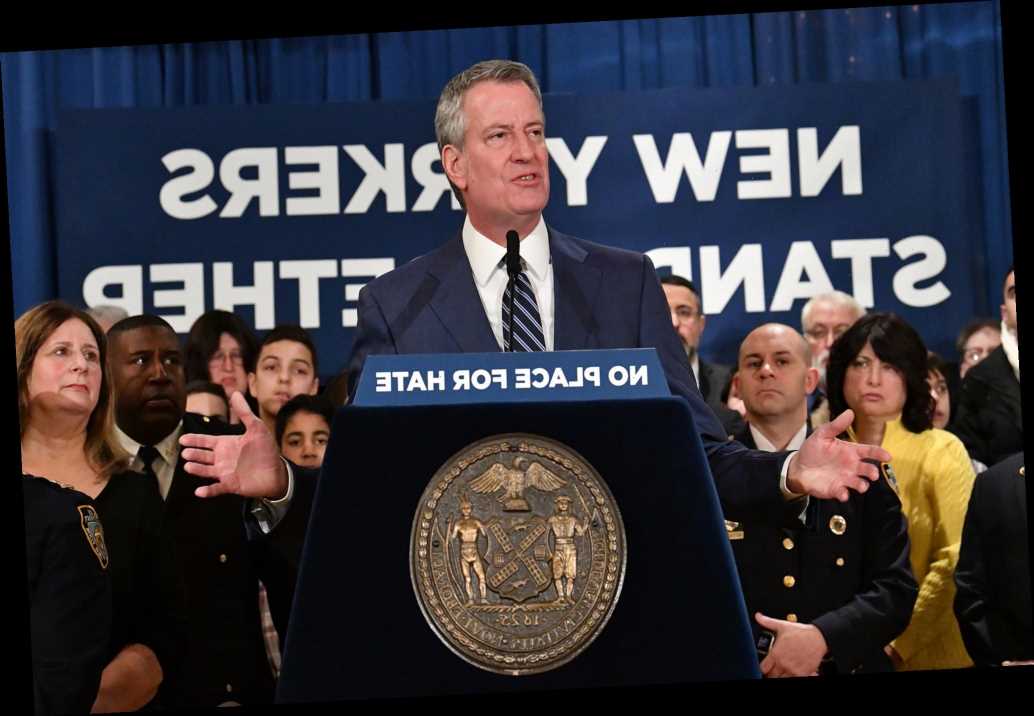Last week, the NYPD published its hate-crimes report for the third quarter, and the results are troubling. Not that you will hear much about it from “social-justice” types. The incidents involved often defy the left’s neat racial narratives, forcing normally vociferous progressives to go mum.
Start with the anti-Semitism. Over the last 12 months, there were 246 anti-Semitic crimes in the Big Apple, up from 144 over the previous 12 months. The number of anti-Semitic assaults jumped to 33 in 2018, up from 17 in 2017, and is on pace to rise again this year, with 19 in just the first half of the year. These attacks brutally target Orthodox Jews, often in broad daylight in Brooklyn neighborhoods that are home to the community.
Then there’s the anti-LGBT violence. The most recent quarterly report tallies 20 incidents, bringing the total number of attacks over the past 12 months to 63, up from 48 in the previous 12 months.
Finally, there’s the anti-Muslim violence, most of which goes unreported (and isn’t well-captured in the report as a result). Yet it is possible to track trends by paying attention to local news and other city agencies. Many of the attacks on this community take place in the Bronx.
In January, for example, there was an attack on a Muslim father walking his daughter home from school. Then in May, a young Muslim woman was accosted while taking a bus home from a college event. Four young men harassed her and then beat her up as she exited, resulting in $4,000 in medical bills.
According to the New York City Commission on Human Rights, black Muslim women are at a “notably high risk for bias-motivated assaults,” with 1 in 5 women experiencing physical assault.
Regardless of the victims’ identity, perpetrators too often escape justice. The attackers in the January anti-Muslim case were only caught because the mother of one of them turned in her 14-year-old son. The Muslim woman beaten up this spring, meanwhile, had to track down street-camera footage on her own before police would pursue the case, having initially dropped it after she failed to make an identification.
Yet there is little pressure on the NYPD from activists who are normally quick to denounce hate crimes and bigotry. What explains this silence? The perpetrators have been disproportionately black.
As the investigative reporter Armin Rosen pointed out in Tablet, “many of the [anti-Jewish] attacks are being carried out by people of color with no ties to the politics of white supremacy.” As he noted, even in cases where no one is caught, video footage overwhelmingly shows minority attackers. Blacks comprised seven of the nine anti-Jewish hate-crime perpetrators arrested during the third quarter.
In the most recent report, blacks comprised 24 of the 34 (71 percent) perpetrators arrested for all hate crimes. After reaching a high of 61 percent in the second quarter of 2018, the black share consistently declined to 14 percent in the second quarter of 2019 but has now shot back up. The NYPD doesn’t account for this odd oscillation, though one wonders if there is a political component to this, as well.
Black perpetrators are especially prominent in anti-LGBT crimes, comprising 10 of the 12 arrested for those crimes in the latest quarterly report. Overall, since the beginning of 2017, blacks comprised 56 percent — 61 of 108 — of those arrested for anti-LGBT hate crimes.
Yet to hear progressive politicians, you would think that skinheads and white supremacists are the only source of bigoted violence in the United States. In a recent essay on anti-Semitism, for example, Sen. Bernie Sanders framed the problem as one having entirely to do with far-right, white-supremacist ideology. To be clear, those ideologies are heinous, and we need to remain vigilant against them.
But in many urban areas, the problem is complicated by the fact that many of the perpetrators themselves are minorities. Just because facts make us uncomfortable, however, doesn’t mean we should ignore them.
The social-justice community must take hate-crime stats seriously — even when the crimes aren’t committed by white supremacists. We must find the courage to look at the warts in the black community before bigoted violence escalates even further.
Robert Cherry is a professor emeritus of economics at Brooklyn College and the CUNY Graduate Center.
Source: Read Full Article
